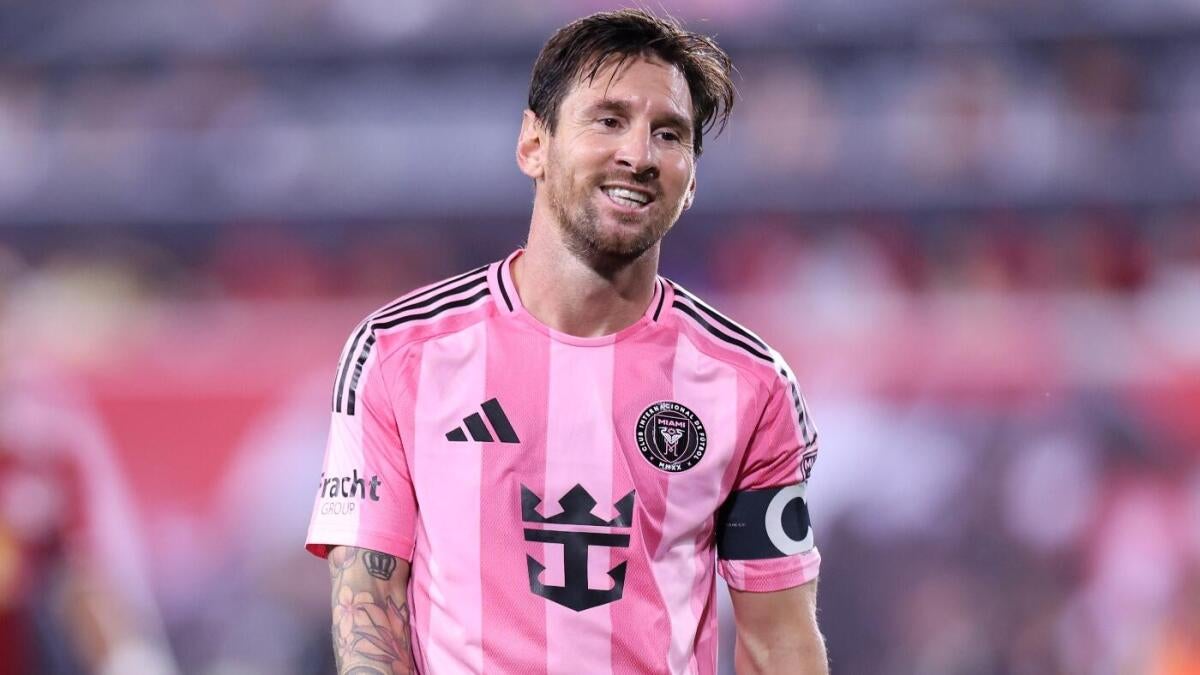The Messi and Alba All-Star Absence: A Risky Move?
Introduction: The All-Star Conundrum
The 2025 MLS All-Star Game is on the horizon, but the excitement is tempered by the potential absence of two of the league’s brightest stars: Lionel Messi and Jordi Alba. Their decision to skip the event, if confirmed, could trigger a one-game suspension under MLS rules, a move that might have significant repercussions for Inter Miami and the league itself. This situation raises critical questions about player obligations, league policies, and the delicate balance between promoting the sport and ensuring player welfare.
The All-Star Dilemma: Participation or Penalty?
At the heart of this issue is a strict MLS policy that mandates All-Star Game participation for selected players, unless they have a legitimate medical reason to opt out. The rule is designed to ensure that the league’s top talents contribute to the All-Star spectacle, which is seen as a key promotional tool. Messi and Alba’s potential absence, without a clear medical justification, could lead to suspensions that disrupt their team’s season.
Messi missed the 2024 All-Star Game due to an ankle injury sustained during the Copa America. This precedent might influence the MLS’s decision, but the lack of a confirmed injury report for 2025 leaves room for speculation. The league will likely scrutinize any explanation provided by Inter Miami, as the policy is not just a suggestion but a binding regulation.
Why This Matters: Beyond the All-Star Spectacle
The potential suspension of Messi and Alba is more than just a missed exhibition game. Inter Miami’s success hinges on their contributions, and a one-game absence could have a ripple effect on the team’s performance. Messi, as the primary playmaker and goal scorer, is indispensable. His absence would force the coach to rethink tactics, potentially disrupting team chemistry and cohesion.
Alba’s role as a defensive stalwart and attacking threat on the left flank is equally crucial. His absence would weaken the team’s defensive stability and reduce their attacking options. The ripple effect of these absences could extend beyond a single game, affecting morale and performance in subsequent matches.
Precedent and Potential Justifications
This situation is not unprecedented. Zlatan Ibrahimovic, during his time with the LA Galaxy, reportedly faced similar scrutiny for skipping an All-Star Game. However, each case is unique, and the MLS considers mitigating factors before imposing penalties.
Inter Miami could argue that Messi and Alba need rest to avoid burnout. The MLS season is grueling, and both players have extensive international and club commitments. Fatigue could increase the risk of injury, a far greater concern than missing a single All-Star game.
The MLS might also consider Messi’s global brand and his contribution to the league’s popularity. Punishing him could backfire, alienating fans and undermining the league’s efforts to attract international talent. The league must weigh the short-term promotional benefits of the All-Star Game against the long-term impact of alienating its biggest stars.
The Business Side of Soccer: Balancing Promotion and Player Welfare
This dilemma highlights the tension between promoting the league through marquee events and protecting player well-being. The All-Star Game is a key promotional tool, designed to showcase the league’s talent and attract new fans. However, the long-term health and happiness of players are equally important.
The MLS must find a balance between these two objectives. Forcing players to participate without considering their physical condition or personal circumstances could be counterproductive. The league’s decision will send a clear message about its priorities and shape its identity for years to come.
The League’s Stance: A Tightrope Walk
The MLS finds itself in a delicate position. It must uphold its rules to maintain consistency and prevent future instances of players skipping the All-Star Game without valid reasons. However, it must also be mindful of the potential consequences of punishing two of its biggest stars.
The league’s decision will likely depend on Inter Miami’s explanation for Messi and Alba’s absence. If the club can provide a compelling justification, the MLS might choose to waive the suspension. However, if the explanation is deemed insufficient, the league may feel compelled to enforce its policy, even if it means facing backlash from fans.
What Happens Next: A Waiting Game
As the All-Star Game approaches, the soccer world waits for answers. Will Messi and Alba make a surprise appearance? Will Inter Miami offer a convincing explanation for their absence? Or will the MLS stand firm and impose a suspension?
The answers to these questions will not only determine the immediate fate of Messi and Alba but also shape the future of player-league relations in the MLS. The outcome will send a clear message about the importance of All-Star participation, the league’s willingness to accommodate player needs, and the delicate balance between promotion and player welfare.
The Final Whistle: A Test of Priorities
Ultimately, the Messi and Alba All-Star saga is a test of priorities. Does the MLS prioritize the spectacle of the All-Star Game above all else? Or is it willing to prioritize the long-term health and happiness of its players, even if it means sacrificing some short-term promotional opportunities?
The league’s decision will reveal its true values and shape its identity for years to come. Whatever the outcome, one thing is clear: the Messi and Alba All-Star absence has sparked a crucial conversation about the future of the MLS and the importance of finding a sustainable balance between promotion and player well-being. The league’s handling of this situation will set a precedent for how it manages similar issues in the future, and the soccer world will be watching closely.

